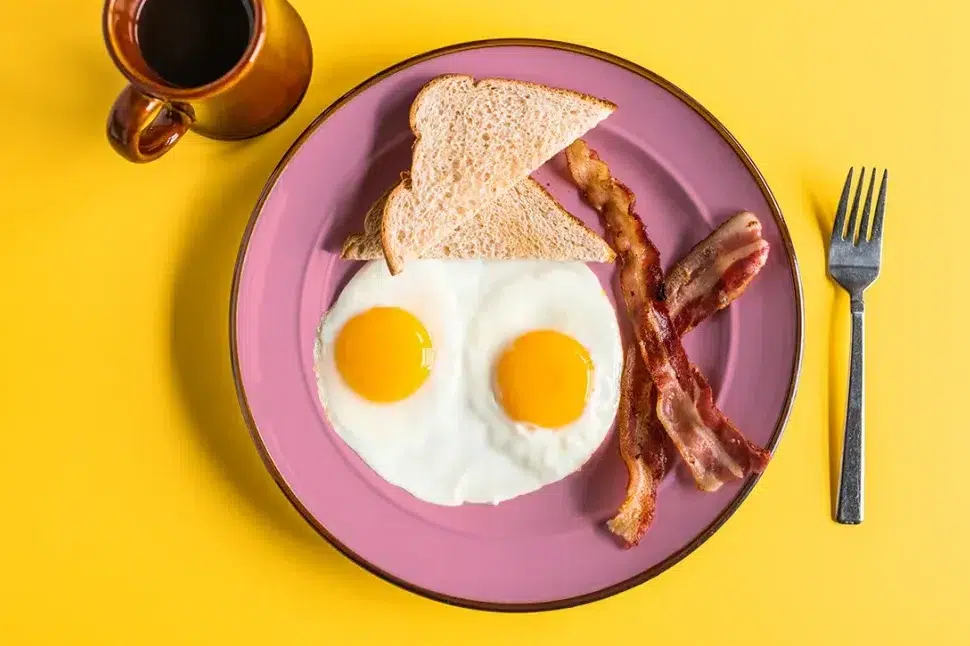Have you heard of healthy behaviors to lose weight? Continue reading.
Losing weight is typically tough for most people. It necessitates a great level of dedication, responsibility, accountability, and willpower. The hardest part is how easy it is to gain back all the weight you lost after making a serious effort for weeks. Although it might seem practically difficult to lose fat or weight, it is not. You only need to make a few little changes; you won’t need to completely change your food or way of life. By adopting some small changes to your daily routine, you may lose weight and keep it off for good.
The standard weight loss and fat loss plan advertisement exaggerates how easy achievement is. The same holds true for exercise regimens. Or for anything that promises to help you accomplish an extremely difficult goal, such as changing careers, starting a business, or even becoming a self-made millionaire.
Why do they believe that success will be easy? an original new strategy. an important discovery. a cunning ruse. You will finally get the success you have always desired, whatever it may be.
Given that “easy” is almost as attractive as “free,” and it sounds great, it should come as no surprise that this sells a lot of plans and programs.
Or not: According to science, the worst thing you can do is suggest or believe that it would be easy to achieve a difficult goal.
a stunning discovery from current research on long-term weight loss. When participants were made aware of how challenging it is to lose weight and keep it off as well as how challenging it would be to maintain the essential self-control, they actually showed more restraint.
In addition to reducing more weight, I was able to keep the extra off.
Because of this, the two most important terms you might use when attempting a large: “It’s tough,”
Of course, making the assertion that it is tough looks ineffective. If you tell someone that something is tough, they might get disheartened. You might not even try a challenge if you tell yourself it’s difficult.
Actually, no.
Stressing how difficult it is to lose weight may actually help people get beyond the inevitable emotional challenges. According to the researchers,
“Leaders of weight reduction programs might better serve their clients by describing the difficulties participants confront in a more somber manner rather than behaving as cheerleaders and offering trite encouragement. The ability it was intended to downplay—stronger self-control with regard to food—may have been strengthened by raising doubts about the value of developing self-control abilities.”
I have unrealistic expectations when you tell me that finishing something difficult will actually be simple.
When things become tough, which they generally do, I’ll give up. It was supposed to be easy.
Inform me that doing anything challenging will actually be challenging, that I might not be able to complete it, that it will likely require more of me than I am likely to be able to supply, and that I will be prepared if things go challenging. I expected it. The procedure is meant to be challenging.
And I’ll be much more motivated to persevere, if only to refute your presumptions about me.
The following time you urge someone to complete a challenging task, be honest about the level of effort required. Don’t promise it will be fast, simple, or painless.
Say “It’s hard” in its place. You can do that, but it will take a lot of hard work, so to speak. You can say that you can do anything, but it will take a lot of willpower and mental toughness.
The same holds true if you decide to take on a big undertaking. Don’t let yourself be fooled into thinking it will be easy. Recognize that challenge. Recognize that the path will be challenging.
When things are challenging and you feel like you have done everything you can, you won’t mind as much if you do it this way.
There’s a reason why breakfast is regarded as the most important meal of the day. By choosing the right breakfast foods, you can avoid racing to the office vending machine for a terrible mid-afternoon snack and feeling satisfied until lunch.
A low-glycemic, protein-rich breakfast helps you stay full by lowering levels of ghrelin, also referred to as the hunger hormone, which increases your appetite and makes you seek out fatty, sugary snacks.
Your metabolism will speed up as a result of increasing your protein consumption, which will also provide you more energy and, more importantly, help you keep your muscle mass.
Thus, when you have breakfast the following morning, consider adding some eggs or Greek yogurt along with a generous amount of almonds and chia seeds.

Habits to Lose Fat #1: Pile on the protein at breakfast
There is a reason why people consider breakfast to be the most important meal of the day. Choosing the right breakfast foods can mean the difference between feeling satisfied till lunch and running to the office vending machine for a poor mid-afternoon snack.
Eating a low-glycemic, protein-rich breakfast will help you stay full by reducing the levels of ghrelin, also referred to as the hunger hormone, which increases your appetite and makes you seek for fatty, sugary snacks.
You’ll have more energy if you eat more protein, and it will also help you retain your muscle mass, which will boost your metabolism.
As a result, the next time you eat breakfast, consider adding some eggs or Greek yogurt together with a large quantity of almonds and chia seeds.

Habits to Lose Fat #2: Stay hydrated with plenty of water
Water is not only crucial for our survival, but it also helps people lose weight. Drinking one or two glasses of water in the morning can increase the number of calories your body burns for up to an hour.
Because our bodies commonly confuse thirst, hunger, and weariness with hunger, drinking a glass of water can help you fight the need to eat. The fact that quenching your thirst makes you feel full, which in turn makes you eat less at meals and have a reduced appetite, means that it also helps avoid overeating.
So begin by starting each morning with a glass (or two) of water and breakfast. Stay hydrated throughout the day by sipping occasionally or by setting a timer to remind you to drink a glass of water every hour.
Habits to Lose Fat #3: Get your Sleep Right
It’s more crucial than you might imagine to get a decent night’s sleep. In addition to increasing your energy levels, sleep is essential for preserving your overall health and well-being. Additionally, getting a good night’s sleep can help you lose weight.
Our bodies can repair and regenerate vital muscles and other systems while we sleep. Lack of sleep causes your body to work harder to burn more energy to power your brain, which makes you feel hungry more quickly. And that causes you to eat more, exercise less, and make incredibly poor food decisions like wanting things heavy in carbs and calories.
Setting up a regular sleep routine helps you lose weight and rebuild your muscles while also ensuring that your body gets enough rest. Try to get at least 7-8 hours of sleep each night for the best outcomes.
Habits to Lose Fat #4: Put on your walking shoes
While using a car or a Grab to work could be very handy for you, it might not be the best thing for your waistline.
A quick morning stroll to work raises your heart rate, gives you more energy for the day, and speeds up your metabolism. Walking does progressively burn off those fats to help with weight loss, even though its calorie burn may not be as high as that of jogging.
Start by including brief walks into your everyday commute to work or after meals. Aim to walk briskly for at least 30 minutes each day.
Our personal training allows you to meet your lifestyle needs and is flexible to fit into your busy schedule. Feel free to contact us for details.
- Permanently Closed Gyms in Singapore: Complete 2016-2025 List & Why You Need to Choose Wisely - December 29, 2025
- Beyond the Comfort Zone: Embracing the Unknown in Fitness and Life - November 14, 2025
- Why Traditional Gyms Don’t Work (And What Does): The Anti-Gym Revolution - November 14, 2025

One Response